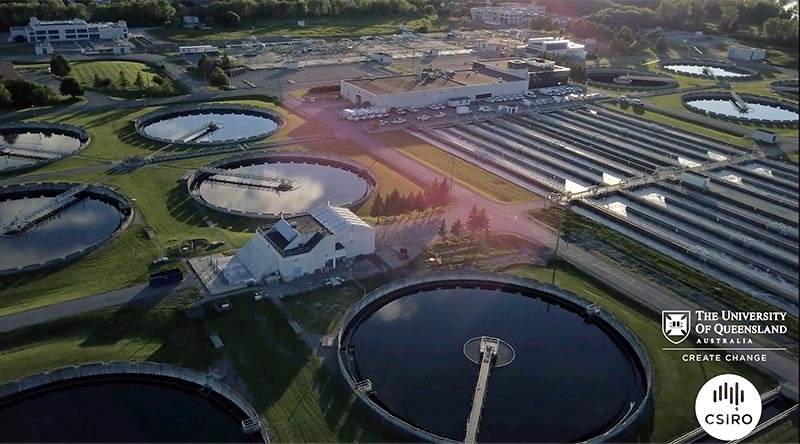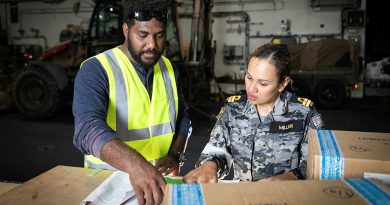CSIRO sniff out COVID-19 in public poo farm

Tracking community outbreaks of COVID-19 through wastewater can happen faster, using more cost-effective tests, according to new research published by the Australian national science agency, CSIRO.
CAPTION: Screenshot from CSIRO video.
The new research builds on the world’s first peer-reviewed proof-of-concept trial run in Brisbane by CSIRO and The University of Queensland which tested untreated sewage and found fragments of SARS-CoV-2, the virus that causes COVID-19.
Scientists have now refined their methods of concentrating and recovering the virus from wastewater samples, which can indicate the presence of COVID-19 carriers in the community, regardless of whether they show symptoms.
Seven methods were tested in the latest study, confirming the most cost-effective and rapid virus recovery process which extracts virus information from wastewater, so it can be tested, with each sample now taking between 15 to 30 minutes to process.
Worldwide wastewater monitoring could save up to USD$1 Billion for national monitoring programs depending on frequency of sampling and population, according to research. Wastewater monitoring has been shown to be significantly cheaper and faster than clinical screening for COVID-19, but would be used as an added diagnostic measure.
CSIRO Chief Executive Dr Larry Marshall said that as COVID-19 restrictions begin to ease, science has found a way to help individual communities avoid a second wave of the pandemic.
“This unique monitoring breakthrough will ensure each suburb gets the medical support it needs so all of us, as a nation, can stay healthier,” Dr Marshall said.
CSIRO researcher Dr Warish Ahmed led the findings published in The Science of the Total Environment, which evaluated the concentration, recovery and detection of SARS-CoV-2 RNA (its genetic code).
“We will keep refining the virus concentration and detection methods to provide more sensitive and accurate results of the viral load in wastewater,” Dr Ahmed said.
“This will provide information on the prevalence of COVID-19 in the community so public health officials can have as much information as possible to manage an outbreak in a timely manner.”
The results will be shared with a new global scientific collaboration, COVID-19 WBE Collaborative, which brings together more than 50 global experts in water-based epidemiology (WBE) to share testing methods and data on wastewater-based surveillance for the current and future disease outbreaks.
The wastewater testing is conducted on untreated sewage, collected as it enters a water treatment plant to provide community-level results.
Based on our knowledge of the persistence of SARS-CoV-2 in wastewater, drinking water is very well protected against all viruses, including the new coronavirus.
- Read the paper: https://www.sciencedirect.com/science/article/pii/S004896972033480X
- Find out more about the global collaboration: https://www.covid19wbec.org/
- View the video: https://vimeo.com/426146474
.
.
.
.
.
.

.
.





